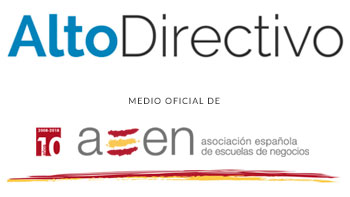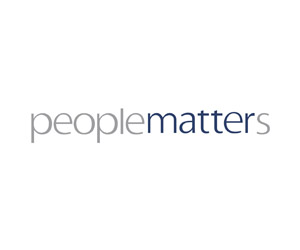Alto Directivo entrevista a Pablo Cervera, presidente de UGEI, que estará presente en el IV Congreso Nacional de Escuelas de Negocios el jueves 15 de noviembre

AltoDirectivo
1. What is EUPHE?
European states have been confronted for many years with budgetary difficulties that do not allow them to correctly accommodate the large number of students in higher education.
Public higher education, which wants more freedom, remains highly subject to public policies that are focused on international rankings and on the construction of powerful national research centers.
These states consider private higher education very differently and even sometimes with a certain anxiety, which nevertheless meets the major challenges of education in globalization.
The initiative to constitute the first European network of private higher education was jointly supported by 5 organizations symbolized by the signing of a charter at the 1st UGEI European Congress on 29 November 2017 in order to change the perception of our governments of our model of higher education but also to promote it to the general public. This initiative followed the celebration of the 20th anniversary of the Bologna Process and the speech of the President of the French Republic at the Sorbonne on September 26, 2017.
The creation of the first European network of private higher education was formalized on June 26, 2018 in Brussels.
The association EUPHE (European Union of Private Higher Education) aims to foster the connection and mediation of European private higher education institutions by creating synergies, cooperation between institutions in training, research and entrepreneurship and more generally it aims to support development of associative actors of private higher education.
On the one hand, EUPHE aims to promote and defend a common model of quality higher education, open and respecting the choices and talents of each. And on the other hand, EUPHE intends to promote the potential of its members through cooperation and synergies.
The 5 essential values shared by the members of the EUPHE association are:
- EUPHE requests the European Union and all member states to consider the plurality of public and private higher education as a high value of a free and democratic society.
- EUPHE demands from the European Union and the governments of the member states to respect and protect the diversity, the difference and the independence of private universities in their legislation and administration with respect to the freedom of research and teaching.
- EUPHE demands from the European Union and the member states the safeguarding of a fair competition between public and private universities with respect to legislation, administration and public funding of higher education.
- EUPHE requests the European Union to ensure the free movement and establishment of European based institutions of private higher education in all member states according to the Services Directive 2006/123/EG.
- EUPHE requests the European Union to ensure that private universities in all member states may participate unrestrictedly in all its programmes for the promotion of higher education as for e.g. Erasmus, Horizon, Leonardo, Sokrates.
2. Which are the main challenges and objectives that you are planning to address in a medium-long term?
Our first objective is to allow a better knowledge of our private higher education among stakeholders in order to ensure its legitimate institutional recognition and its role in the creation of European economic and social value.
And then, we hope that this value will spread to each higher education institution in the network in order to benefit each of our students.
We want to create a collective dynamic by connecting our schools to each other, in order to develop common projects such as European courses, double degrees or co-diplomas, to introduce Erasmus + Projects, to create a shared platform of entrepreneurship and a European virtual incubator, to carry out actions together by answering European calls for projects. And tomove towards innovative models of private European universitiessuch as the dynamics of public education.
This roadmap shows the strength of our ambition!
3. What have been the main reasons to found EUPHE?
Today but certainly more tomorrow, the future will belong to those who will create new synergies, to create some value by innovating. Our diversity is an asset to support and sustain this dynamic and the network is a real effective instrument.
Private Higher Education is admired, but envied and prevented.
In order to be even stronger and make our identity model recognized, we mustbe able to confront our positions in our respective states in order to share our practices and our experiences.
Private higher education in Europe does not always have the same situation :
In Greece there is a restrictive policy for accreditation of private institutions, on the contrary, the Belgian State supports economically private schools. This is even more visible in Norway where the 29 private institutions of higher education, renowned for their high academic level and innovative teaching methods, are strong financial supported.
In France the name "University" is used for public institutions only, private institutions can notconfer national degrees (Bachelor’s degree, master’s degree, doctorate) and some schools of engineering and management schools benefit from the specific label of general interest non profitinstitution of higher education, this label allows them to benefit from a contract with the State.
Depending on the States, there are variable policies for recognizing the right to award a doctorate by private institutions or the possibility of tax deduction of tuition fees in other Countries such as in Germany.
This heterogeneity testifies to the very variable relations between the states and their private higher education.The different national practices and statutes show the importance of the opportunities of private higher education in Europe.
By sharing our experiences and our cultural heritage, we can hope to build a true European identity of private higher education, a Europe that now becomes a direct interlocutor and a future partner.
In this context, EUPHE has an important role to play in promoting our internationally recognized trainings to the national and European representations so that our institutions are recognized for their essential mission in higher education and market satisfaction.
In the 2018 ranking of the Financial Times for the Masters of Management, there are 7 private institutions among the top 15 !
In the same way, in the United States, the best schools are private independent institutions (like MIT, Harvard, Yale, Princeton, Columbia ...)
4. How does EUPHE consider the present quality of the High Education both in Europe and in Spain?
In addition to the involvement of most of its training institutions in the Bologna Process, the question of quality is measured both from the normative standards and accreditation, but also from the market.
The European Union receives 1.6 million students in international mobility. Germany and France are major destination countries for international mobility students (both countries receive 245,000 students each), ahead of Italy (93,000), the Netherlands (90,000), Austria (70,000) and Spain (48,000).
The employability of the institutions represented by our organizations is good and even excellent and attests to the high quality perceived by the companies. However, most of higher education institutions in Spain and throughout the European Union are part of European standards (and even international standards).
The training processes of our institutions generally refer to ESGs (European Standards and Guidelines for Quality Assurance), which build the reference frameworks for European higher education(in particular the first part concerning the internal quality assurance of higher education institutions).
Our international dynamics is strongly inspired by the CeQuint label (Certificate for Quality in Internationalization) which aims to measure, encourage and promote the quality of the internationalization of institutions and training. For the engineering trainings, the shared reference are Standards and guidelines for accreditation of engineering programs produced by ENAEE (European Network for Engineering Accreditation).
Of course, private higher education in Spain is fully involved in this process and I do not see any significant difference with the other European institutions of higher education.
The question arises of the appropriate corpuses of current standards with the nature of our institutions and their mission of accompanying the evolutions of our society.
The current European standards leave little room for entrepreneurship, which is at the heart of our educational activities. The question will soon arise of the contribution of our network to the renovation of current standards or even to the creation of a new system of standards that is better adapted to our missions.
5. Do you think it is possible to unify High Education all along Europe so it will become the same for all the EU countries? Are there any level differences between similar degrees in the different EU countries?
While the Bologna process largely contributed to European standardization, the needs of the market and companies, above all, set the requirements in terms of "learning outcomes".But our companies are transnational and our executives are international. They decide the specifications of our European higher education and contribute to its unification.
Of course there are some differences between each of our institutions regardless of their country, but not the State makes these differences even if governments can make it easier ... or more difficult for our institutions.
Our project is above all a project of cooperation that federates our respective identities to create more educational value. The courses offered by each of our schools or universities are inspired by our cultures and our vision of the future, and this combination of these industrial, managerial and social identities will be sources of wealth.
The unification should not lead to normalization, or worse, to a loss of identity. On the contrary, the combination of these differences will build the future engineer or manager. EPF, the engineering school that I manage has implemented a joint degree with a German partner for more than 20 years. The association of a more academic French culture and a more industrial German culture makes a remarkable result. Each partner brings its specificities and the result of this alchemy makes a real European engineer. I take this example because it shows our ambition: to do more and better together by going beyond ego to better for our students.
Intra-European mobility leads to a form of regulation. Students will more and more look for the answer to their expectations wherever it can be :in Spain, Germany, Portugal or Australia and Canada ...
Higher education is a market and the real competition is probably not within the European area but in other continents, Asia or America.
The Lisbon Convention defines clear and transparent criteria for the recognition of foreign qualifications. The different countries practice systems of equivalence or comparison. In France, a system of comparibilitywas adopted. This recognition system places foreign degrees with regard to the French classification of training levels and to the European qualifications framework. This evaluation of qualifications leads to a certificate of comparibilitythat can be presented to an employer or to a French training institution.
6. Are the problems of the different educational institutions similar along the different countries?
There are in all countries some common issues and some specific issues. We noticed that the situations are disparate from a state to the other one (level of financial support, right to deliver national diplomas, economic incentives, professional integration of researchers, recognition of short courses such as Bachelor ...)
Perhaps one of the differences is in the kind of relationship between higher public and private education. In some countries they are frontal competitors, in others they are trying to cooperate and in others they are simply ignoring each other.
I think that our ambition to better promote private higher education in Europe will help to open minds, lift fears and perhaps tomorrow a stronger recognition will open up new perspectives for cooperation, and I hope, with public institutions. We are leading the same education project and we share common societal values with public education but our essential advantage to approach the future is : Agility. This agility is in our decision-making processes: they are more reactive, this agility is in our managerial culture of collective and individual responsibility, in the permanent benchmark that we operate with other training operators and which drives us to innovation, in our ability to mobilize resources including financial resources, in our international dynamics and especially our realism which inspires pragmatism in our actions.
7. Which will be the main items you will be talking about on the next Business Schools Conference in Madrid?
The relevant points that we will discuss during the conference will be :
- The growing role of private higher education to meet the needs for training of the global growth
- The ambitions of our common organization to create more collective and individual value
- Our roadmap to convince European higher education stakeholders of the challenges of recognizing and supporting our model
*Si te ha resultado interesante este artículo, te animamos a seguirnos en TWITTER y a suscribirte a nuestra NEWSLETTER DIARIA.
Alto Directivo








